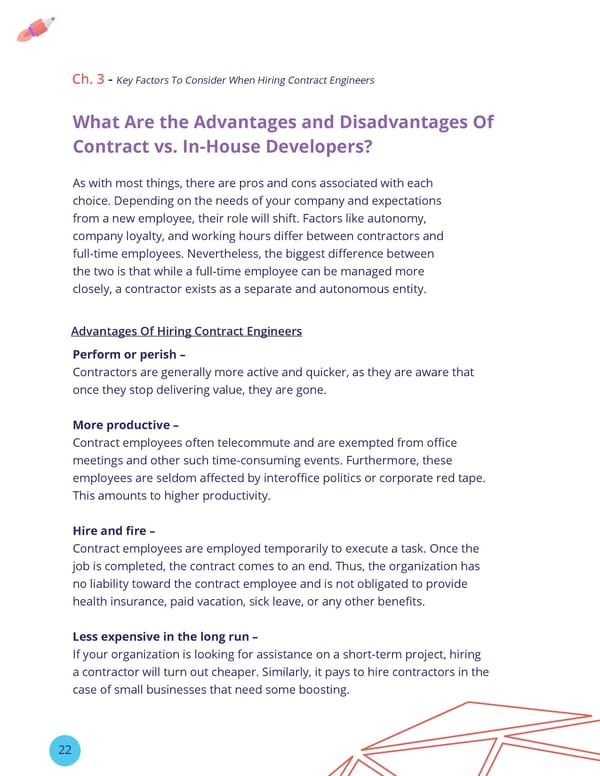Ch. 3 - Key Factors To Consider When Hiring Contract Engineers What Are the Advantages and Disadvantages Of Contract vs. In-House Developers? As with most things, there are pros and cons associated with each choice. Depending on the needs of your company and expectations from a new employee, their role will shift. Factors like autonomy, company loyalty, and working hours differ between contractors and full-time employees. Nevertheless, the biggest difference between the two is that while a full-time employee can be managed more closely, a contractor exists as a separate and autonomous entity. Advantages Of Hiring Contract Engineers Perform or perish – Contractors are generally more active and quicker, as they are aware that once they stop delivering value, they are gone. More productive – Contract employees often telecommute and are exempted from office meetings and other such time-consuming events. Furthermore, these employees are seldom affected by interoffice politics or corporate red tape. This amounts to higher productivity. Hire and fire – Contract employees are employed temporarily to execute a task. Once the job is completed, the contract comes to an end. Thus, the organization has no liability toward the contract employee and is not obligated to provide health insurance, paid vacation, sick leave, or any other benefits. Less expensive in the long run – If your organization is looking for assistance on a short-term project, hiring a contractor will turn out cheaper. Similarly, it pays to hire contractors in the case of small businesses that need some boosting. 22
 The Non-Technical Founder's Guide to Building an App | CrowdBotics Page 21 Page 23
The Non-Technical Founder's Guide to Building an App | CrowdBotics Page 21 Page 23